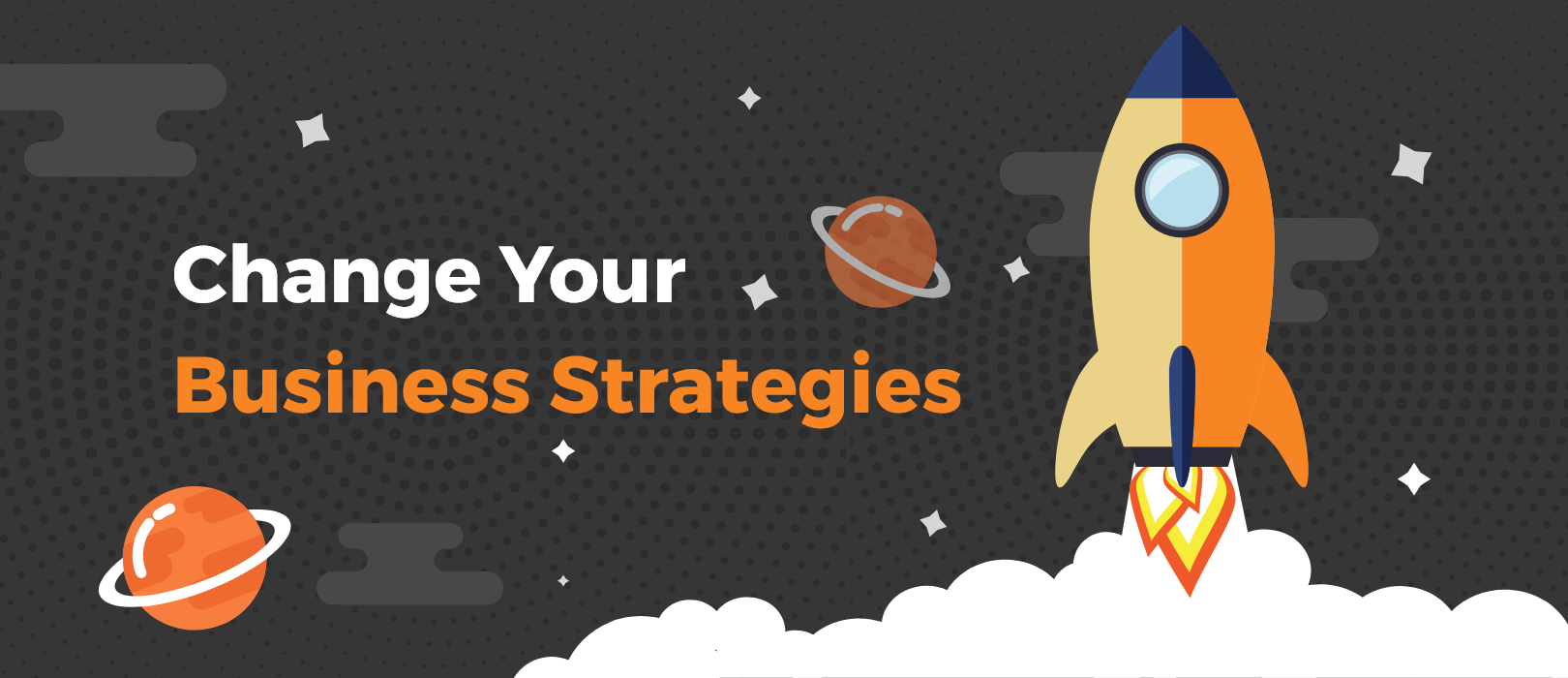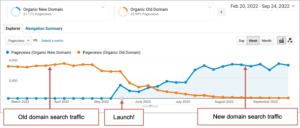Digital marketing has revolutionized the way businesses operate in today’s fast-paced world. Gone are the days of traditional marketing methods; now, it’s all about the digital frontier. So, how is digital marketing changing business? Well, grab a cup of coffee and let’s dive into this exciting topic together!
In the age of smartphones, social media, and instant gratification, businesses have had to adapt to keep up with the ever-changing landscape. Digital marketing has become the key to unlocking success and staying relevant in this digital-driven era. From small startups to multinational corporations, everyone is harnessing the power of digital marketing to reach their target audience and achieve their business goals. But what exactly is digital marketing, you ask? It’s like a magical toolbox filled with a plethora of strategies and techniques to connect, engage, and convert potential customers into loyal brand advocates. It encompasses everything from search engine optimization (SEO) to content marketing, social media advertising, email campaigns, and so much more.
Digital marketing has leveled the playing field, allowing even the smallest of businesses to compete with industry giants. It has opened up new avenues for growth, enabling businesses to expand their reach beyond geographical boundaries. With digital marketing, businesses can now target specific demographics, personalize their messaging, and track their results in real-time. It’s like having a virtual storefront that never closes, where customers can discover, interact with, and purchase products or services at any time of the day. So, buckle up, because we’re about to embark on a journey through the fascinating world of how digital marketing is changing the game for businesses everywhere. Get ready to be amazed!

How Digital Marketing is Changing Business?
Digital marketing has revolutionized the way businesses operate, transforming traditional marketing strategies and opening up new opportunities for growth. In this digital age, businesses are leveraging the power of online platforms to reach a wider audience, build brand awareness, and drive customer engagement. The impact of digital marketing on business is undeniable, and it continues to shape the way companies market their products and services. In this article, we will explore the various ways in which digital marketing is changing the business landscape and the benefits it offers to organizations.
The Shift from Traditional to Digital Marketing
In the past, businesses heavily relied on traditional marketing methods such as print ads, billboards, and television commercials to promote their products and services. However, with the advent of the internet and the widespread use of smartphones, digital marketing has emerged as a more effective and cost-efficient alternative. Digital marketing allows businesses to target specific demographics, track the success of their campaigns in real-time, and adjust their strategies accordingly. This shift from traditional to digital marketing has leveled the playing field for businesses of all sizes, enabling startups and small businesses to compete with larger corporations.
Digital marketing platforms, such as social media, search engines, and email marketing, provide businesses with a direct line of communication to their target audience. Through these channels, companies can engage with customers, gather valuable feedback, and tailor their marketing messages to suit individual preferences. The ability to personalize marketing campaigns based on consumer behavior and interests has significantly improved the effectiveness of digital marketing strategies.
The Benefits of Digital Marketing for Businesses
Digital marketing offers a multitude of benefits for businesses, regardless of their industry or size. One of the key advantages is the ability to reach a global audience. Unlike traditional marketing methods that are limited to a specific geographic area, digital marketing allows businesses to expand their reach to customers around the world. This opens up new markets and opportunities for growth, especially for businesses operating in niche industries.
Another benefit of digital marketing is its cost-effectiveness. Traditional marketing methods can be expensive, especially for small businesses with limited budgets. Digital marketing, on the other hand, offers a range of affordable options, such as social media advertising and email marketing, that deliver a high return on investment. This allows businesses to allocate their marketing budget more efficiently and achieve better results.
Furthermore, digital marketing provides businesses with valuable insights into consumer behavior and preferences. Through analytics tools, companies can track the success of their campaigns, measure key performance indicators, and make data-driven decisions. This data-driven approach enables businesses to continuously optimize their marketing strategies and improve their overall performance.
In conclusion, digital marketing is transforming the way businesses operate and market their products and services. It offers numerous benefits, including a global reach, cost-effectiveness, and valuable insights into consumer behavior. As technology continues to advance, digital marketing will only become more important for businesses looking to stay competitive in today’s digital age. Embracing digital marketing strategies and staying up-to-date with the latest trends and technologies is crucial for businesses to thrive and succeed in the evolving business landscape.
Key Takeaways: How Digital Marketing is Changing Business?
- Digital marketing is revolutionizing the way businesses connect with customers.
- Businesses can now reach a global audience through online platforms and social media.
- Traditional marketing methods are being replaced by digital strategies for better results.
- Data analytics play a crucial role in understanding customer behavior and preferences.
- Digital marketing allows businesses to personalize their marketing efforts and target specific audiences.
Frequently Asked Questions
1. How has digital marketing changed the way businesses reach their target audience?
Digital marketing has revolutionized the way businesses connect with their target audience. In the past, traditional marketing methods such as print ads and television commercials were the primary means of reaching customers. However, with the rise of digital platforms, businesses now have access to a wide range of tools and strategies to engage with their target audience. From social media advertising to email marketing campaigns, digital marketing allows businesses to reach their customers in a more targeted and personalized way.
Furthermore, digital marketing provides businesses with valuable data and analytics that can help them better understand their audience. With this information, businesses can refine their marketing strategies and tailor their messaging to resonate with their target customers. Overall, digital marketing has transformed the way businesses connect with and engage their audience, leading to more effective and efficient marketing campaigns.
2. How has digital marketing impacted consumer behavior?
Digital marketing has had a significant impact on consumer behavior. With the advent of digital platforms and the rise of social media, consumers now have more access to information and options than ever before. They can easily research products, read reviews, compare prices, and make informed decisions. As a result, consumers have become more empowered and demanding.
Digital marketing has also made it easier for businesses to target and reach specific consumer segments. Through personalized ads and targeted messaging, businesses can create more relevant and engaging experiences for their customers. This has led to an increase in customer expectations and a higher demand for personalized and tailored products and services.
3. What are the benefits of digital marketing for small businesses?
Digital marketing offers numerous benefits for small businesses. Firstly, it provides a cost-effective alternative to traditional marketing methods. Small businesses often have limited marketing budgets, and digital marketing allows them to reach a wider audience without breaking the bank. With platforms like social media and email marketing, small businesses can target specific customer segments and drive more targeted traffic to their website or store.
Additionally, digital marketing allows small businesses to compete with larger corporations on a more level playing field. With the right digital marketing strategies, small businesses can increase their visibility, build brand awareness, and attract new customers. It also provides valuable data and insights that can help small businesses refine their marketing efforts and make data-driven decisions.
4. How has digital marketing changed the customer journey?
The customer journey has been significantly influenced by digital marketing. In the past, the customer journey was often linear, with customers moving through a series of predetermined stages, such as awareness, consideration, and purchase. However, with the rise of digital platforms, the customer journey has become more complex and non-linear.
Customers now have access to a wealth of information and options at their fingertips, and they can engage with businesses through multiple touchpoints. They may discover a brand through social media, research products online, read reviews, and compare prices before making a purchase. Digital marketing has allowed businesses to create more personalized and seamless customer experiences across these touchpoints, guiding customers through their journey and ultimately influencing their decision-making process.
5. What are the future trends in digital marketing that will further impact businesses?
There are several future trends in digital marketing that will continue to impact businesses. One of the key trends is the growth of mobile marketing. With the increasing use of smartphones and mobile devices, businesses need to ensure that their digital marketing strategies are optimized for mobile platforms.
Another trend is the rise of artificial intelligence (AI) and machine learning. AI-powered chatbots and virtual assistants are becoming more prevalent in customer service and marketing, providing businesses with a more personalized and efficient way to engage with their customers. Additionally, data privacy and security will continue to be a significant concern, with businesses needing to prioritize the protection of customer data.
Furthermore, the integration of digital marketing with emerging technologies such as virtual reality (VR) and augmented reality (AR) will create new opportunities for businesses to engage with their audience in innovative and immersive ways. Overall, the future of digital marketing holds exciting possibilities for businesses, requiring them to stay agile and adapt to the evolving landscape.
5 Explosive Digital Marketing Strategies for 2023 (BIG Changes Ahead!)
Final Summary: How Digital Marketing is Changing Business?
In this fast-paced digital age, it’s no surprise that digital marketing has revolutionized the way businesses operate. From small startups to multinational corporations, the impact of digital marketing is undeniable. As we conclude our exploration of this topic, let’s recap the key ways in which digital marketing is transforming the business landscape.
First and foremost, digital marketing has leveled the playing field for businesses of all sizes. With the power of online advertising, social media marketing, and search engine optimization (SEO), even small businesses can now compete with industry giants. The accessibility and affordability of digital marketing platforms have opened up new opportunities for businesses to reach their target audience and expand their customer base.
Furthermore, digital marketing has enabled businesses to engage and interact with their customers on a whole new level. Through social media platforms, email marketing, and personalized content, businesses can build meaningful relationships with their customers, fostering loyalty and brand advocacy. The ability to gather and analyze data from digital marketing campaigns also provides valuable insights into consumer behavior, allowing businesses to tailor their strategies and offerings accordingly.
In conclusion, digital marketing is not just a trend but a fundamental shift in how business is conducted. It has revolutionized the way businesses connect with their customers, promote their products or services, and ultimately drive growth. As technology continues to advance and consumer preferences evolve, it is crucial for businesses to embrace digital marketing and adapt to the ever-changing landscape. By doing so, they can stay relevant, competitive, and thrive in the digital age.







